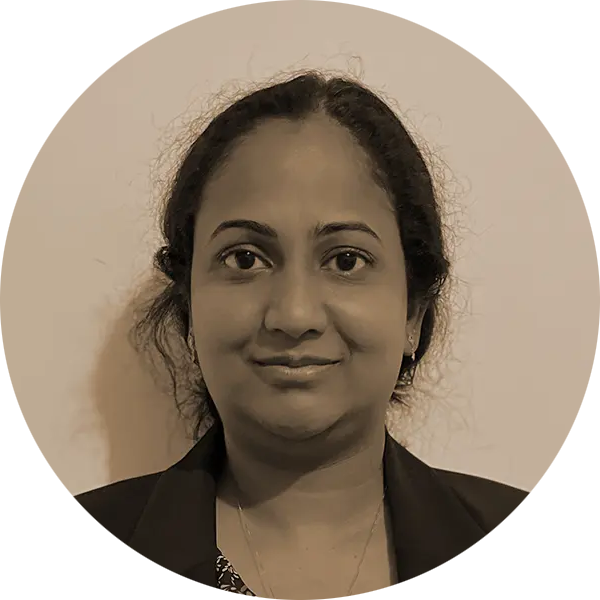PTSD Assessment & Diagnosis Melbourne
Our Psychiatrists are committed to providing comprehensive assessments to correctly identify PTSD symptoms and ensure that you receive an accurate diagnosis.
Book online for a fast, affordable and convenient online PTSD diagnostic assessment or call Fluence Clinic directly on 03 6121 4298.

Post Traumatic Stress Disorder (PTSD)
Post-traumatic stress disorder (PTSD) develops following an exposure to a life-threatening event to oneself or a close relation.
According to DSM V the main features of PTSD include:
- Experiencing or witnessing a stressful event.
- Re-experiencing symptoms of the event that include nightmares and (or) flashbacks.
- Efforts to avoid situations, places, and people that are reminders of the traumatic event.
- Hyperarousal symptoms, such as irritability, concentration problems, and sleep disturbances and negative alterations in cognitions and mood (American Psychiatric Association, 2013).
The Australian Bureau of Statistics estimates that 14.4% of Australians, or 2.3 million people, will have an anxiety disorder at some point in their life, with 6.4% of Australians experiencing PTSD (Australian Bureau of Statistics, 2008).
Many people with PTSD need professional diagnosis and treatment to recover from psychological distress that can be intense and disabling.
It is important to remember that Trauma may lead to severe distress. Distress is not the individual’s fault and PTSD is treatable.
The earlier a person gets treatment, the better the chances of recovery. Send us an online enquiry for a fast, affordable and convenient PTSD assessment or call Fluence Clinic directly on 03 6121 4298.
PTSD assessment process
Step 1: Get a Referral from your local Doctor in Melbourne
A GP (Doctor) referral is required to have a PTSD assessment with Fluence Clinic. The referral should be addressed to Fluence Clinic, under a 291 Medicare item code.
We will provide follow-ups if needed after the initial assessment.
The referral can be emailed to [email protected]
Step 2: Book your PTSD Assessment + Diagnosis
Once we receive your referral from your local GP, you will receive an SMS message with a contact number to call Fluence Clinic in order to book your PTSD assessment.
Step 3: Pre-Assessment Form
Your welcome email will include the link to your pre-assessment documentation.
This form usually takes around 45 minutes to complete and includes all the necessary psychometric scales required to inform your assessment with the Psychiatrist.
Step 4: Receive Link to Video Platform
Your Telehealth appointment with the psychiatrist will take between 45 and 60 minutes. You will receive an email the day before with a link that is used to gain access to the health direct video platform.
Step 5: Online PTSD Assessment
Your Psychiatrist will facilitate a collaborative discussion and a semi-structured interview after looking through your pre-assessment paperwork.
At the end of this assessment, your Psychiatrist will provide you with verbal feedback about the diagnosis and recommendation plan.
Step 6: Post Assessment
Your Psychiatrist will provide you and your GP with a comprehensive written report.
If you have attracted a diagnosis of PTSD, your Psychiatrist will also provide a delegation letter that enables your GP to apply for a permit to prescribe stimulants within 14 days of your initial assessment.
Benefits Of PTSD Testing
PTSD (Post-Traumatic Stress Disorder) is a treatable condition, with various effective options available to manage and alleviate symptoms.
A PTSD assessment can provide many benefits, including:
- You’ll receive an accurate diagnosis of PTSD;
- Enables you to recieve a personalised treatment plan from a Psychologist;
- Understanding your diagnosis empowers you with knowledge leading to better self-management of symptoms.
- Effective treatment following diagnosis can significantly alleviate symptoms, improving your ability to function in work, relationships, and social settings.
- Access to resources and the right support;
- Prevention of your PTSD condition becoming worse over time.
These benefits collectively contribute to a significantly improved quality of life for people suffering from PTSD, helping them to recover stability in their daily lives and long-term health.
Need An Assessment?
If you’re searching for a PTSD assessment & diagnosis in Melbourne, we can help.
Frequently Asked Questions
A PTSD assessment involves a comprehensive evaluation that includes interviews, questionnaires, and psychometric testing.
The assessment aims to identify PTSD symptoms and determine their severity.
During the assessment, we will evaluate the individual’s cognitive and behavioural functioning.
We will also assess the individual’s strengths and weaknesses and provide them with strategies to manage their symptoms effectively.
Our team will also offer guidance to the individual and their family throughout the assessment process.
We will write a comprehensive delegation letter to your GP outlining medications namely stimulants or non-stimulants that can be used after a collaborative discussion with the patient.
Yes – We provide PTSD assessments for people via our online platform.
You will need a referral from your gp for a 291 mental health assessment.
Email your referral to [email protected] and we’ll be in touch to arrange the next step.
We work with all states in Australia.
Make sure that your GP is happy to prescribe once they have been given the delegation from the psychiatrist.
Between 1-8 weeks.
Yes, we are currently taking on new patients.
As soon as we receive a referral, you will receive a text message providing you with a contact number to call to book your assessment.
Unfortunately, we cannot give out the contact details of our psychiatrists at Fluence Clinic
Children 10+ and adult assessments from 18+
If you’re sure a referral has been sent and you haven’t heard back from us, call now on 0457 243 459 to follow up.
Yes, the Medicare rebate amounts vary depending on the type of assessment you are having.
Yes, in some cases. It depends on your personal policy.
Call us on 0457 243 459 and we can assist you.
If you have a question that we haven’t answered here, please contact us and we’ll be happy to assist.























